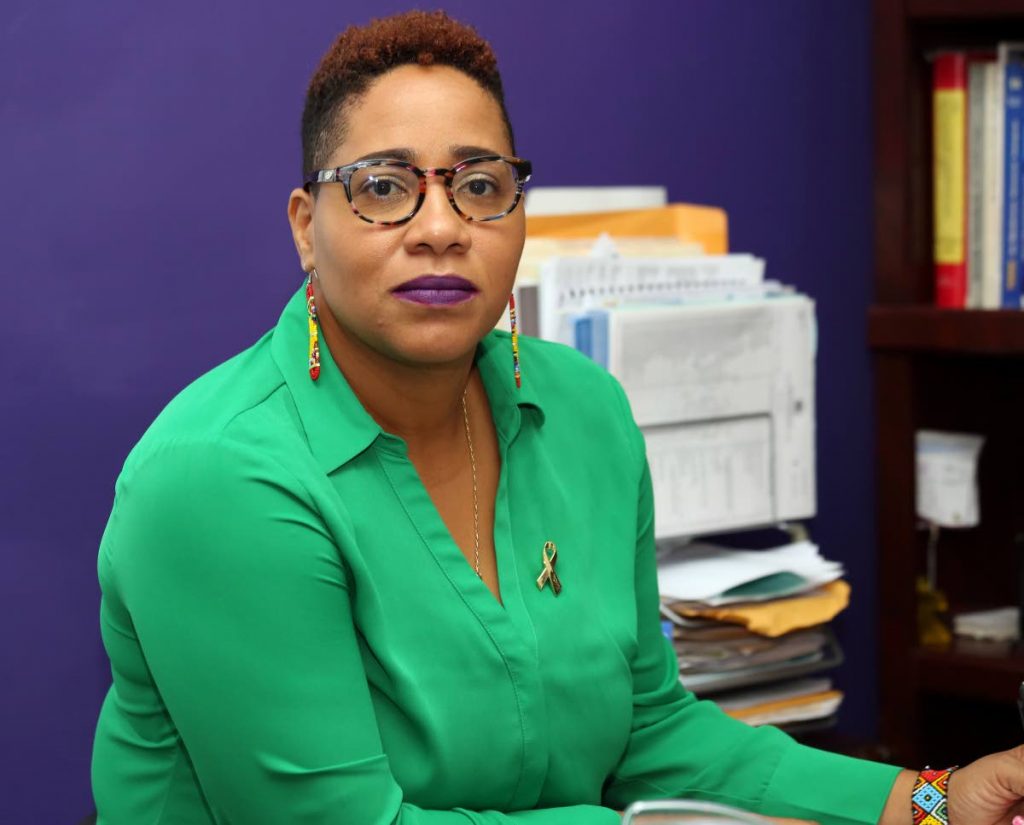Health Professionals Urge Early Breast Cancer Testing as Diagnoses Increase among Younger Caribbean Women: Recent Data Reveals Troubling Trend

October 28, 2023
Health professionals in the Caribbean emphasize the importance of early testing for breast cancer, as data reveals a troubling increase in diagnoses among women aged 30-39. Awareness and support communities play a crucial role in addressing this issue.
Health professionals in the Caribbean are urging women to seek early testing for breast cancer, as recent data reveals a troubling increase in diagnoses among women between the ages of 30 and 39.
During a recent webinar titled ‘Join the Fight: A conversation about breast cancer,’ organized by Sagicor Life, a Primary Care Physician from St Kitts and Nevis, Dr Kesiha Liddie, issued a stark warning about the shifting landscape of breast cancer diagnoses over the past five to six years.
“The important thing is to become aware very early,” Dr Liddie said. She noted that while breast cancer diagnoses have historically been associated with older age and a higher incidence in females compared to males, there is a growing trend of breast cancer being detected in younger women.
Data from St Kitts underscored this concerning trend. Dr Liddie shared statistics indicating that the country reported 36 cases this year within the age group of 50 to 59 and 23 cases in ages 40 to 49. There were no cases found under the age of 30.
However, there were 14 cases diagnosed in women aged 30 to 39, marking a significant increase in diagnoses among younger women compared to previous years when the majority of cases occurred in women aged 50 and above.
Dr Asante Le Blanc, Chairperson of the Trinidad and Tobago Cancer Society, delved into potential risk factors beyond age that might be contributing to the rising number of cases among younger women. She emphasized that while family history and lifestyle choices may be influential, environmental factors, including climate change, were also playing a significant role in the escalating cancer incidence.
Furthermore, Dr Le Blanc stressed the importance of awareness and vigilance, both personally and professionally, highlighting risks associated with the prolonged use of birth control and exposure to carcinogens, formaldehyde, and radiation in certain occupations and lifestyles.
She pointed out that the rise in breast cancer diagnoses among younger women, while concerning, reflects an increased awareness of the disease and underscores the need for preventive measures.
“Screening for breast cancer is a very holistic programme and that means from our young age of puberty, we need to teach young girls about their breasts and how to do self-breast examinations because it aids in terms of you understanding what your breasts feel like on a monthly basis before even having to do a clinical breast exam,” Le Blanc said.
“So, from a young age, if you understand what your breasts feel like, when you’re 30 and feel something different, you won’t have to wonder and wait, you can go to your doctor and say something is different because you know what your breasts have been feeling like over the years … and that allows for earlier diagnosis and therefore early detection and therefore better survivorship.”
The webinar also featured personal stories from two panelists, Tonya Byer, a digital communications specialist from Barbados, and Nurse and Counselor Emalda Benjamin from Antigua and Barbuda.
Byer shared her diagnosis experience at the age of 38, emphasizing the importance of self-awareness and prompt medical attention when faced with unexplained weight loss during breastfeeding.
In contrast, Benjamin initially dismissed a lump she felt in 2017 but sought medical help during a routine physical examination at the age of 50, which led to her breast cancer diagnosis.
Dr Liddie reflected on these personal stories, acknowledging that the lifestyle of the current generation has significantly evolved compared to previous generations. She underscored that breast cancer is an individualized disease, presenting differently for each person.
Dr Liddie stated that risk factors such as early menarche, late menopause, not having children, having a first child after the age of 30, and choosing not to breastfeed, all increase the likelihood of breast cancer.
Breast cancer stands as the leading cause of cancer-related deaths for women in the Caribbean region. As awareness about the disease continues to grow, participants in the webinar pointed to the critical need to build robust support communities for those affected by breast cancer.
Dr Le Blanc therefore encouraged patients to connect with survivor networks, highlighting the significant advancements in cancer treatment in recent years.
Concluding her remarks, Dr Blanc noted, “You’re going to have tough days, you’re going to have good days, but that’s where your support network comes into play, and though it might seem daunting, there have been remarkable strides in cancer treatment on the whole.”


